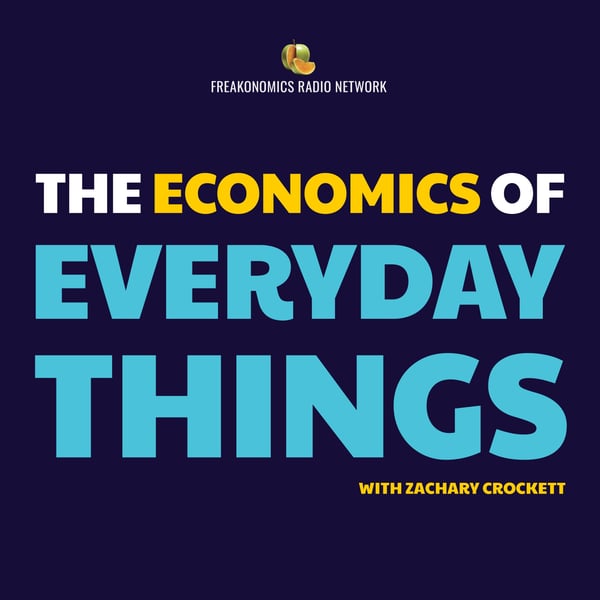9. Bowling Alleys
The Economics of Everyday Things
Freakonomics Network
4.8 • 1.2K Ratings
🗓️ 10 July 2023
⏱️ 16 minutes
🧾️ Download transcript
Summary
Transcript
Click on a timestamp to play from that location
| 0:00.0 | The sounds you're hearing probably evoke a certain image. |
| 0:15.0 | Monagram's shirts, shoe spray, the anguished groan of a 710 split. |
| 0:21.0 | More than 45 million Americans bowl each year. It's still one of the |
| 0:27.2 | countries most played sports. But bowling isn't what it used to be. |
| 0:32.8 | Organized leagues have been in decline for decades. |
| 0:36.1 | Many of the country's bowling alleys |
| 0:37.6 | have been replaced by high-rise condos and office space. |
| 0:41.7 | And the establishments that remain have had to get creative to keep their businesses out of the |
| 0:46.9 | gutter. People would say, |
| 0:52.8 | say, wow, when they walk in, |
| 0:54.8 | bowling has become cool again. |
| 0:57.4 | For the Freakonomics Radio Network, |
| 1:00.1 | this is the economics of everyday things. I'm Zachary Krakkin. Today, bowling alleys. |
| 1:07.6 | In the 1960s, bowling experienced a golden age. |
| 1:11.2 | Professional bowlers were national heroes who earned more than NFL stars. |
| 1:16.4 | Bowling alleys were a critical part of America's social fabric. The poor man's country club, |
| 1:21.7 | as one trade publication put it. |
| 1:24.0 | There were more than 12,000 of them. |
| 1:27.0 | I remember that they were crowded with a lot of men that were smoking cigarettes and cigars. |
| 1:34.0 | That's Mike Leong. |
| 1:36.0 | He started bowling in 1966, and he was hooked from the start. I think my first league average was around 144, which was not bad for an 11 year old kid. |
| 1:52.3 | By the time I was 15. Not bad for an 11 year old kid. |
... |
Please login to see the full transcript.
Disclaimer: The podcast and artwork embedded on this page are from Freakonomics Network, and are the property of its owner and not affiliated with or endorsed by Tapesearch.
Generated transcripts are the property of Freakonomics Network and are distributed freely under the Fair Use doctrine. Transcripts generated by Tapesearch are not guaranteed to be accurate.
Copyright © Tapesearch 2025.

